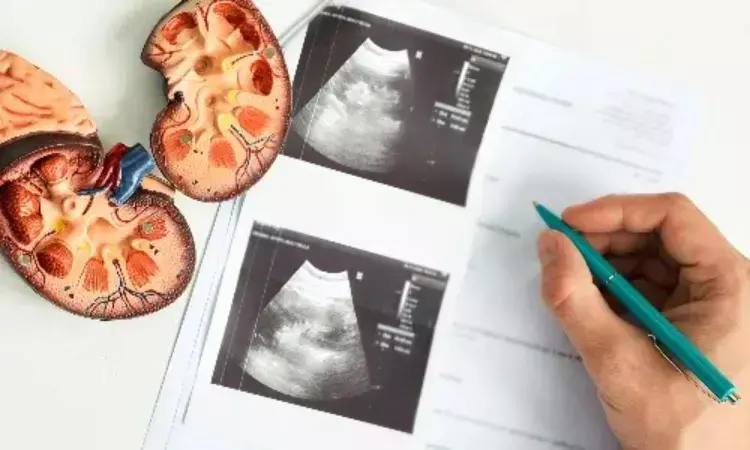- Home
- Medical news & Guidelines
- Anesthesiology
- Cardiology and CTVS
- Critical Care
- Dentistry
- Dermatology
- Diabetes and Endocrinology
- ENT
- Gastroenterology
- Medicine
- Nephrology
- Neurology
- Obstretics-Gynaecology
- Oncology
- Ophthalmology
- Orthopaedics
- Pediatrics-Neonatology
- Psychiatry
- Pulmonology
- Radiology
- Surgery
- Urology
- Laboratory Medicine
- Diet
- Nursing
- Paramedical
- Physiotherapy
- Health news
- Fact Check
- Bone Health Fact Check
- Brain Health Fact Check
- Cancer Related Fact Check
- Child Care Fact Check
- Dental and oral health fact check
- Diabetes and metabolic health fact check
- Diet and Nutrition Fact Check
- Eye and ENT Care Fact Check
- Fitness fact check
- Gut health fact check
- Heart health fact check
- Kidney health fact check
- Medical education fact check
- Men's health fact check
- Respiratory fact check
- Skin and hair care fact check
- Vaccine and Immunization fact check
- Women's health fact check
- AYUSH
- State News
- Andaman and Nicobar Islands
- Andhra Pradesh
- Arunachal Pradesh
- Assam
- Bihar
- Chandigarh
- Chattisgarh
- Dadra and Nagar Haveli
- Daman and Diu
- Delhi
- Goa
- Gujarat
- Haryana
- Himachal Pradesh
- Jammu & Kashmir
- Jharkhand
- Karnataka
- Kerala
- Ladakh
- Lakshadweep
- Madhya Pradesh
- Maharashtra
- Manipur
- Meghalaya
- Mizoram
- Nagaland
- Odisha
- Puducherry
- Punjab
- Rajasthan
- Sikkim
- Tamil Nadu
- Telangana
- Tripura
- Uttar Pradesh
- Uttrakhand
- West Bengal
- Medical Education
- Industry
Rare case of Oxalate nephropathy associated with celiac disease reported

A recent case study published in BMC Nephrology found the association of oxalate nephropathy with newly diagnosed celiac disease, a condition that affects the small intestine. While oxalate nephropathy is commonly reported in gastrointestinal diseases, such as primary hyperoxaluria, its occurrence in celiac disease is extremely rare.
A 72-year-old Caucasian male was admitted to the hospital with abdominal discomfort and acute renal insufficiency. Upon evaluation, the patient's creatinine levels were found to be significantly elevated at 290 µmol/L. A comprehensive assessment, including clinical course, laboratory results, and urinalysis, pointed towards tubular injury. To confirm the diagnosis, a renal biopsy was conducted, revealing the presence of calcium oxalate depositions. This led to the diagnosis of oxalate nephropathy.
Further investigation revealed that the patient had been experiencing abdominal complaints, steatorrhea (fatty stools), and tested positive for anti-tissue transglutaminase antibodies. Following duodenal biopsies, celiac disease was confirmed as the underlying cause for these symptoms.
To address the patient's condition, a multidimensional treatment approach was implemented. The patient was prescribed prednisone to manage the symptoms of celiac disease, and a strict gluten-free diet was initiated. Additionally, the patient was placed on a low oxalate and normal calcium diet. These dietary modifications aimed to decrease the absorption of free fatty acids, which can lead to increased free oxalate in the colon. The binding of free fatty acids to calcium prevents the formation of the less absorbable calcium oxalate in the colon, thereby reducing the risk of oxalate nephropathy.
Over the course of treatment, the patient's plasma oxalate levels gradually decreased, and his renal function improved. This response to therapy highlights the importance of prompt diagnosis and the implementation of appropriate management strategies in cases of oxalate nephropathy associated with celiac disease.
This rare case serves as a reminder of the intricate interplay between gastrointestinal diseases and renal health. Through continued research and enhanced clinical awareness, we can strive to improve the diagnosis, management, and overall outcomes for patients affected by oxalate nephropathy and associated conditions like celiac disease.
Source:
Zijlstra, H. W., & Stegeman, C. A. (2023). Oxalate nephropathy in an elderly patient with newly diagnosed celiac disease – a case report. In BMC Nephrology (Vol. 24, Issue 1). Springer Science and Business Media LLC. https://doi.org/10.1186/s12882-023-03241-y
Neuroscience Masters graduate
Jacinthlyn Sylvia, a Neuroscience Master's graduate from Chennai has worked extensively in deciphering the neurobiology of cognition and motor control in aging. She also has spread-out exposure to Neurosurgery from her Bachelor’s. She is currently involved in active Neuro-Oncology research. She is an upcoming neuroscientist with a fiery passion for writing. Her news cover at Medical Dialogues feature recent discoveries and updates from the healthcare and biomedical research fields. She can be reached at editorial@medicaldialogues.in
Dr Kamal Kant Kohli-MBBS, DTCD- a chest specialist with more than 30 years of practice and a flair for writing clinical articles, Dr Kamal Kant Kohli joined Medical Dialogues as a Chief Editor of Medical News. Besides writing articles, as an editor, he proofreads and verifies all the medical content published on Medical Dialogues including those coming from journals, studies,medical conferences,guidelines etc. Email: drkohli@medicaldialogues.in. Contact no. 011-43720751


